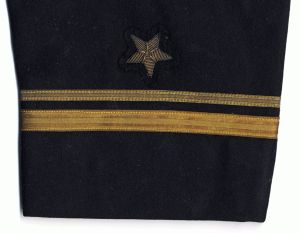
Introduction
Typically, we construct our national plots in the most general and even allegorical terms as a binary problem between, as Walt Whitman wrote, “One’s Self” and “En-Masse.” “History writing,” Williams hoped, crossed the space in between only “if we are honest enough,” only if the individual used it as a mirror for self-examination. When Williams considered alternatives he thought of fiction. In Contours, he wrote, “A stronger case might be made for saying that James Fenimore Cooper defined the American utopia . . . in fact he outlined two . . . the eastern aristocracy, hardly either unique or idealistic in 1800, and . . . the frontier of Natty Bumppo. But that was not a society.” He concluded that in the American imagination, the frontier was never connected to reality: “in this meaning [it] was a process of becoming, not of being, and hence substituted motion for structure as its end.” It is the arena only of “One’s Self.” As Ninety Days Inside the Empire shows, when Williams himself wrote fiction he confronted this basic American problem: the socialist/humanist emerges in his attraction to an intermediate position between the individual and the anonymous masses, a locally defined community where a sense of the individual remains as a constituent part in the group and where mobility tends to become the enemy of responsibility.

Lieutenant's stripes
From the William Appleman Williams Papers, Special Collections, Oregon State University
Finally, however, an enforced mobility becomes the refuge of William Appleman Williams the novelist. Ninety Days Inside the Empire does not complete its story of an early and unsuccessful Civil Rights Movement in Corpus Christi, where the stakes and tensions continued to rise and where a few years later the local NAACP leader was assassinated. This novel’s final chapter, typically, heads West. It follows Commander Mitch Taylor and Kerry Wye as they head for new assignments, and introduces an attractive diversion in Colonel Clifford Nord, a Wyoming son and decorated bomber pilot whose vignette brings in the themes of post-war shock and guilt but then gives way to what might be called pleasant male sentimentality: the parting, with suitably suppressed emotions, of two warriors. Williams had a heart.
Table of Contents
- Maggie and Mr. Hank
- The Reverend
- Squalls Along the Flight Line
- Flying Home to Church
- A Visit with The Judge
- Communion
- Afterthoughts
- Monday Morning With The Admiral
- Into the Dining Room
- On Toward Walking the Streets
- Glimpses of An Election
- The Dream and The Reality of Violence
- The Admiral Loses More Than a Few Good Men
- Down That Lonesome Road

